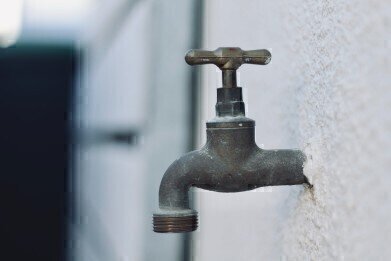Fuel for Thought
Russia's Rosneft Supplies Oil on Tap. Literally.
Aug 19 2015
In the Western world people have become accustomed to the luxury of turning on a tap and enjoying clean, clear water. However in Siberia, homes and businesses have been experiencing a completely different form of liquid. In the wake of a major pipeline leak, Russian state-owned oil corporation Rosneft has been blamed for causing oil to stream out of everyday taps located in homes and businesses in the Nefteyugansk region.
The environmental oversight agency has revealed that the leak first started on June 23. As oil continued to leak into the Cheuskin channel and Ob river overflow, residents began to report oily water pooling in their gardens and streaming out of their taps.
Russia’s environmental watchdog is now investigating the incident and is pursuing Rosneft for contaminating Ob river floodwater. RN Yuganskneftegaz, a subsidiary of Rosneft has already been stung for violating water protection regulations, with more fines set to be handed out as the case progresses. As well as being chased by the nation’s environmental watchdog, Rosneft is also under investigation for failing to prevent accidents and efficiently clean up after the incident.
Russia’s oil spill crisis
Every year Russia’s ageing pipeline infrastructure encounters thousands of spills, with the Hydrometeorological Centre of Russia estimating that this equates to around 4.5 million tonnes of oil. This is a huge seven times more than the BP Deepwater Horizon disaster that saw the Gulf of Mexico drenched in oil back in 2010. Spills are an all too common occurrence, and as one of Russia’s major oil towns, Nefteyugansk was always at risk. While most don’t generate a huge amount of publicity, this one’s close proximity to the city of Nefteyugansk made it particularly alarming. Eco officials are calling on the country to reassess its policies and advocate for a cleaner, greener Russia.
Yevgeniya Belyakova, Arctic project coordinator at Greenpeace Russia says, “The fact that it’s in Nefteyugansk is a good reason to change a system that is designed not to protect the environment but rather to favour oil companies, the system for following up on oil spills.”
When extracting, transporting and storing oil, leak management should be made a paramount priority. ‘Storage Tanks - Liquid Measurement and Leak Detection Using Reed Switch Technology’ examines concerns over level measurement and leak detection in aboveground storage tanks, as well as the Federal, state and local regulations that must be met. All must meet the U.S. EPA’s Spill, Prevention, and Countermeasure (SPCC) requirements, as enforced by the Office of Underground Storage Tanks.
Digital Edition
PIN 25.2 Apr/May
April 2024
In this Edition Safety - Carbon monoxide toxic and flammable gas detection Analytical Instrumentation - Density: A fundamental parameter at critical stages within the petroleum sector...
View all digital editions
Events
May 06 2024 Riyadh, Saudi Arabia
May 06 2024 Houston, Tx, USA
May 06 2024 Houston, Tx, USA
Canada Gas & LNG Exhibition & Conference
May 07 2024 Vancouver, BC, Canada
May 08 2024 Lahore, Pakistan


















